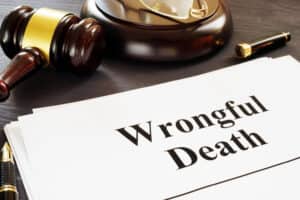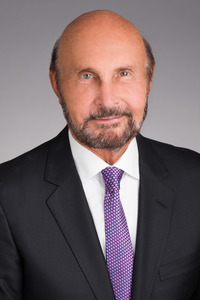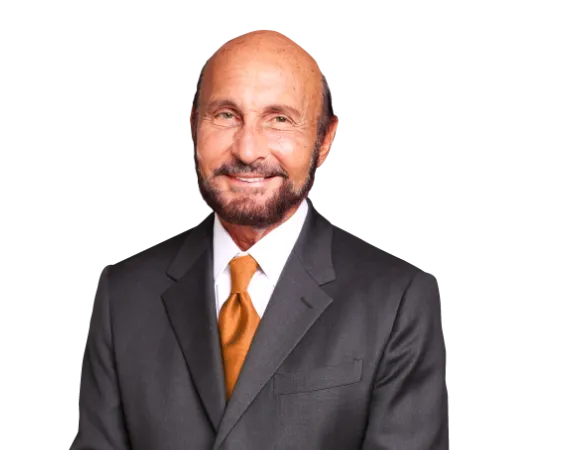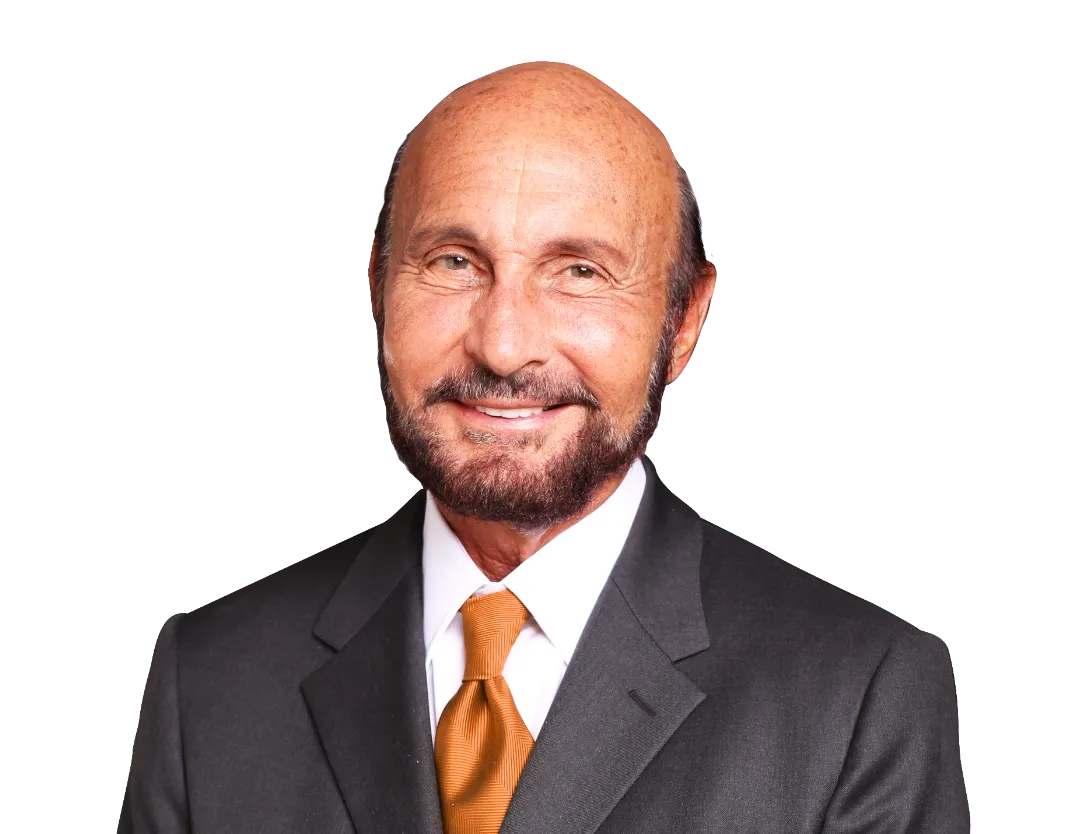Henderson Wrongful Death Lawyer
The death of a loved one is always excruciating, but it may worsen when someone’s negligence causes it. In addition to the grief and outrage, the survivors must face financial burdens such as lost income and medical and funeral bills.
If you suffered such a terrible loss, we are sorry, and we want to help you. Please consult the experienced, compassionate Henderson wrongful death lawyers at Edward Bernstein and Associates as soon as possible.
Our Henderson wrongful death lawyers can explain your legal options and protect your legal rights so you can receive justice, closure, and a full and fair settlement.
About our firm
For 42 years, the legal team at Edward Bernstein and Associates has served clients in the greater Las Vegas community with excellence and dedication. Founding partner Edward Bernstein has received numerous honors and awards. He has been named one of America’s Top 100 High Stakes Litigators. The lawyers at Edward Bernstein and Associates have a well-deserved reputation for their knowledgeable, professional, and efficient client service.
Henderson Wrongful Death Guide
- What cases give rise to wrongful death lawsuits?
- Proving a wrongful death lawsuit
- Statute of limitations
- FAQ
- Our Henderson wrongful death lawyers can help you.
What cases give rise to wrongful death lawsuits?

Unintentional injuries happen all the time, and they can cause fatalities. Such injuries are the fourth leading cause of death in the U.S.—unintentional injuries cause about 40 deaths per 100,000 people each year. What makes those injuries wrongful death cases?
In a wrongful death case, negligent or intentional action or failure to act of a third party must cause the death. Depending on the facts of the case, the wrongdoer may be a person, a business, or in some cases, a government entity. These lawsuits arise from a variety of personal injury cases, such as premises liability, drowning, or deaths related to the use of prescription drugs.
For example, a reckless or intoxicated driver may cause a traffic fatality, or a building inspector may fail to properly inspect a structure, leading to a fatal accident.
No matter the cause of the wrongful death, the skilled lawyers at Edward Bernstein and Associates can guide you through the process. A wide variety of personal injury cases can result in a wrongful death case, including:
Car accidents
In just one year, Nevada saw 382 traffic deaths, the highest number in 15 years. Most car accidents are the result of driver negligence, such as speeding, distracted driving, or driving under the influence. When a driver’s negligence causes a fatal crash, the driver may be liable for the fatalities. In some cases, road issues cause accidents, and the government agency responsible for road design or maintenance may be liable.
Semi-truck accidents
Accidents involving semi-trucks are more likely to be fatal because of their massive size. Other factors may be driver fatigue or improper cargo handling.
Pedestrian accidents
Pedestrian accidents have a high fatality rate because pedestrians lack the protection of a vehicle.
Work-related accidents
Wrongful death can occur in any workplace or work-related situation. However, some jobs have a very high risk, such as construction or derrick operators in oil, gas, and mining. According to recent statistics, the rate of worker fatalities and injuries in Nevada is far above the national average.
Defective products
Among the most common defective products involved in wrongful death lawsuits are:
- Cars and car parts
- Medical devices (such as a defibrillator or pacemaker)
- Consumer products (such as power tools or kitchen appliances)
- Children’s products (such as car seats or high chairs)
- Machinery and industrial products
Proving a wrongful death lawsuit

To prevail in a wrongful death lawsuit, you must establish specific legal elements. In most cases, the fatality occurred because of the negligent or wrongful act of another.
Negligence is a legal concept. It means failing to exercise the care toward others that a reasonable or prudent person would do in the same circumstances or taking action that a reasonable person would not do in those circumstances.
The elements of negligence are:
- The existence of a legal duty that the defendant owed to the plaintiff
- Defendant’s breach of that duty
- Plaintiff’s injury
- Proof that the defendant’s breach caused the injury (typically defined through proximate cause)
However, some wrongful death cases are the result of intentional acts. Intentional violence occurs when the person acts intentionally, makes non-consensual contact with the injured party, and causes fatal harm. For example, intentional violence may include shooting, stabbing, or hitting someone with a vehicle.
The burden of proof is a legal standard that determines if a legal claim is valid or invalid based on the evidence produced. This standard typically lies with the party initiating or filing a claim. Because a wrongful death lawsuit is a civil action, the burden of proof is lower than the burden of proof in a criminal case, the burden of proof is lower.
In a criminal case, the victim must prove the defendant’s guilt beyond a reasonable doubt. But in a civil matter, such as a wrongful death case, the burden of proof is that there is a greater than 50 percent likelihood the claim is true.
Statute of limitations
In Nevada, the statute of limitations for wrongful death is two years. The law may bar the lawsuit if the claim is not filed within two years. Wrongful death is a civil matter, but the wrongdoer may also face criminal charges. A criminal court can find a person innocent in civil court can find them liable for the death. Therefore, even if the state charged the person who caused the death with murder or manslaughter and acquitted them, the decedent’s family may still prevail in a wrongful death suit.
Henderson Wrongful Death FAQ
What is the law in Nevada concerning wrongful death?
What if a person or entity injures someone through negligence or intentional harm? Typically, the injured person may sue the perpetrator for their injuries. However, what if the injured person dies before they can pursue a personal injury lawsuit? In the case of a fatal injury caused by someone else, the heirs of the deceased person may be able to bring a lawsuit instead.
Nevada’s wrongful death law is a civil action. The law regarding wrongful death in Nevada states that the heirs of the decedent and the personal representatives of the decedent may pursue compensation.
Are a wrongful death case and a survival action the same thing?
No, they are different legal actions.
A survival action is a lawsuit filed by the victim’s estate against the person liable for the injuries sustained by the deceased before their death. The purpose of a wrongful death lawsuit is to compensate the deceased’s family for their losses. However, the purpose of the survival lawsuit is to permit the estate to seek damages the decedent would have sought if they had not died, such as lost wages or pain and suffering.
For example, under a survival lawsuit, the estate can claim for:
- Losses that the decedent could have sued for as of the date of death but may not be related to the fatality
- Losses that arise from fatal injury. This may apply if the injured victim lived for a time, no matter how brief, after sustaining the injury.
Who may file a wrongful death suit in Nevada?
The following people may file a wrongful death claim:
- The personal representative of the deceased person’s estate; and/or
- The deceased victim’s “intestate heirs,” which is the legal term for their surviving family.
If the deceased is married, their heirs are their surviving spouse, domestic partner, or children.
An unmarried and childless deceased’s heirs are (in order of seniority):
- Parents of the deceased,
- Siblings of the deceased,
- The closest surviving family member who is not a parent or sibling.
Some individuals may not bring a wrongful death claim in Nevada, even if they are named as beneficiaries in the victim’s will:
- Significant others,
- Fiancées, and/or
- Close friends
What type of evidence might be offered in a wrongful death claim?
It can be difficult to prove a wrongful death case because the victim cannot testify. Therefore, convincing evidence and the testimony of expert witnesses can help build a strong case. Each case is different and requires different proof.
Evidence commonly includes:
- Death certificate. A certified death certificate, which states the cause and manner of death.
- Medical records. Detailed medical records such as consultation records, test results, prescription information, notes, and other healthcare documentation are vital in these cases.
- Police reports. The police are often involved when there is a fatal incident. The police report often contains valuable evidence.
- Autopsy report. An autopsy may need to establish the cause of death.
- Physical evidence. Physical evidence is tangible proof of what occurred, such as bloodstains, fibers, or tire marks.
- Pictures or videos. These are critical and convincing evidence. There are video cameras on many buildings and in other public places. It is important to obtain this type of footage quickly before it is lost or taped over. Most cell phones can take photos or videos. Photos of an accident scene can reveal many essential details about an incident.
- Witness statements. Witness statements can confirm what occurred and are very credible evidence. If anyone witnesses a fatal accident, it is best to obtain their contact information or take a statement from them as soon as possible. Expert witnesses, such as medical or accident reconstruction experts, help build a strong case.
- Tax returns and pay stubs. Pay stubs and tax returns can establish lost income when determining compensation. Expert testimony from an economist, actuary, or financial expert may help establish future loss.
What compensation might I recover in a wrongful death claim?
For the survivors of a victim in a fatal accident, life will never be the same. The effects are both personal and economic. Therefore, these cases tend to produce large settlements and compensation awarded by the court.
The main purpose of damages is to compensate the survivors for the financial losses that resulted from the victim’s wrongful death. For example, family members may have suffered the loss of economic support, household services, affection, companionship, or guidance.
It is extremely difficult to place a price tag on a person’s life. It helps to understand the victim’s circumstances at the time of their death.
Factors in assessing damages include:
- The plaintiff’s age
- The plaintiff’s earning capacity, education
- The plaintiff’s life expectancy and health
- Any dependents who may suffer the loss of guidance
If a victim’s estate sues for wrongful death in Nevada, financial compensation may include:
- Special damages, which include medical bills or expenses that the deceased person incurred before death;
- Funeral expenses and burial expenses;
- Any compensatory damages that the victim would have recovered from the defendant had they not died; and/or
- Any punitive damages that the victim would have recovered from the defendant had they not died
Compensatory damages are those the court awards to help repay parties for the losses they suffered. However, in rare cases, the court awards punitive damages to punish the defendant and deter others from acting in a similar, wrongful manner.

Our Henderson wrongful death lawyers can help you.
If someone you love died because of another’s wrongdoing, you may pursue a wrongful death claim. Tragically, nothing will bring your loved one back, but you may still need closure for the untimely death and justice for your loss. Pursuing a wrongful death claim may make the economic burdens of the death easier and hold the person who caused the injury responsible for their actions.
For more information or an initial consultation, call the experienced, compassionate personal injury lawyers in Henderson at Edward Bernstein and Associates at (702) 728-4137, or contact us online today.

